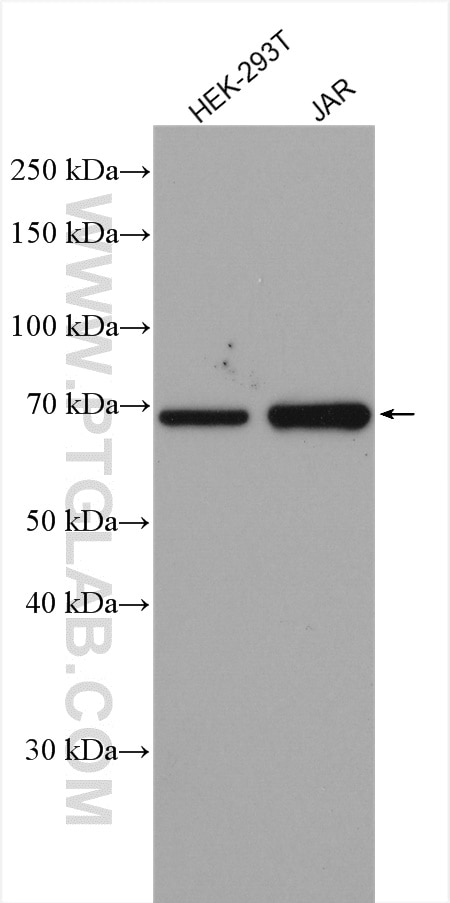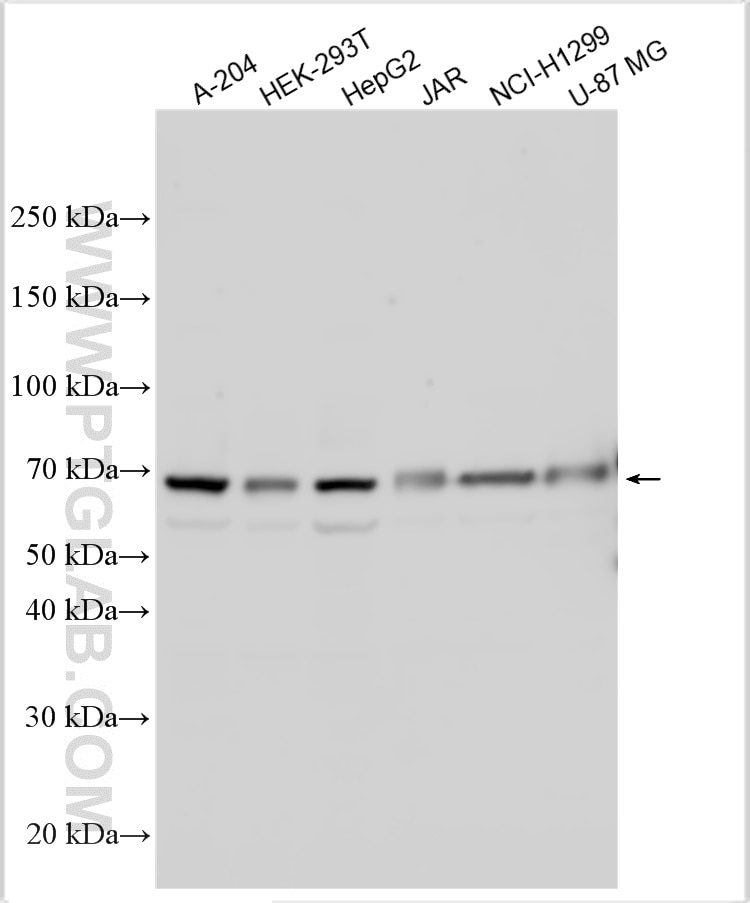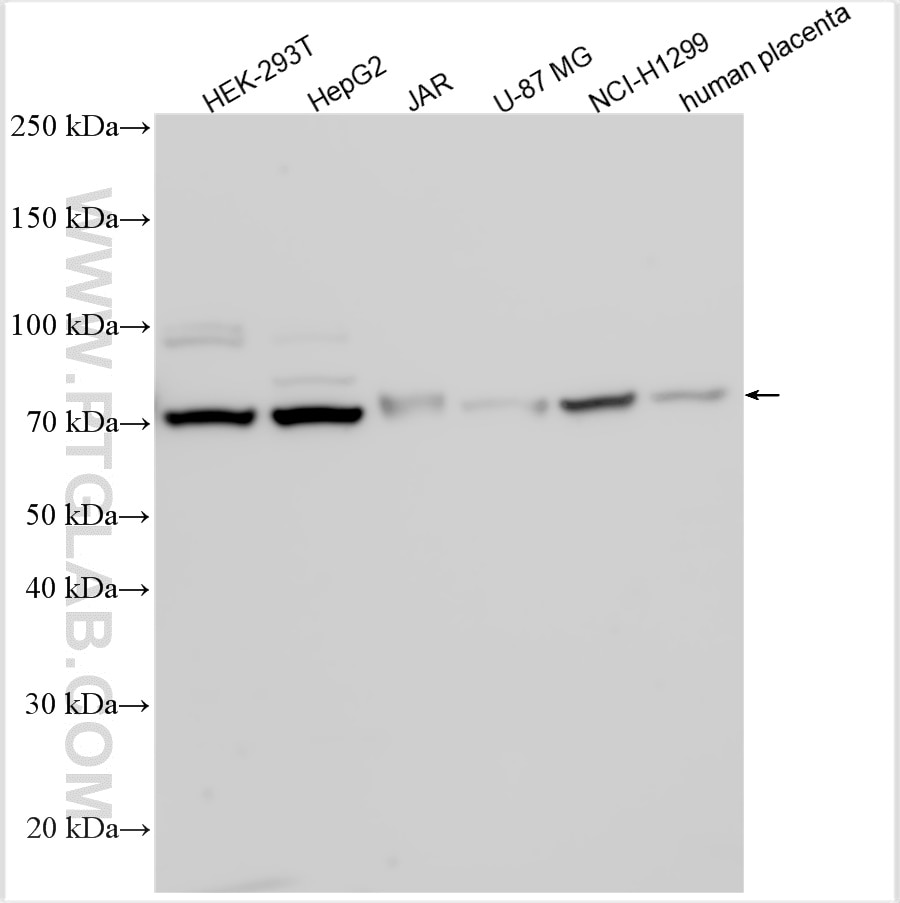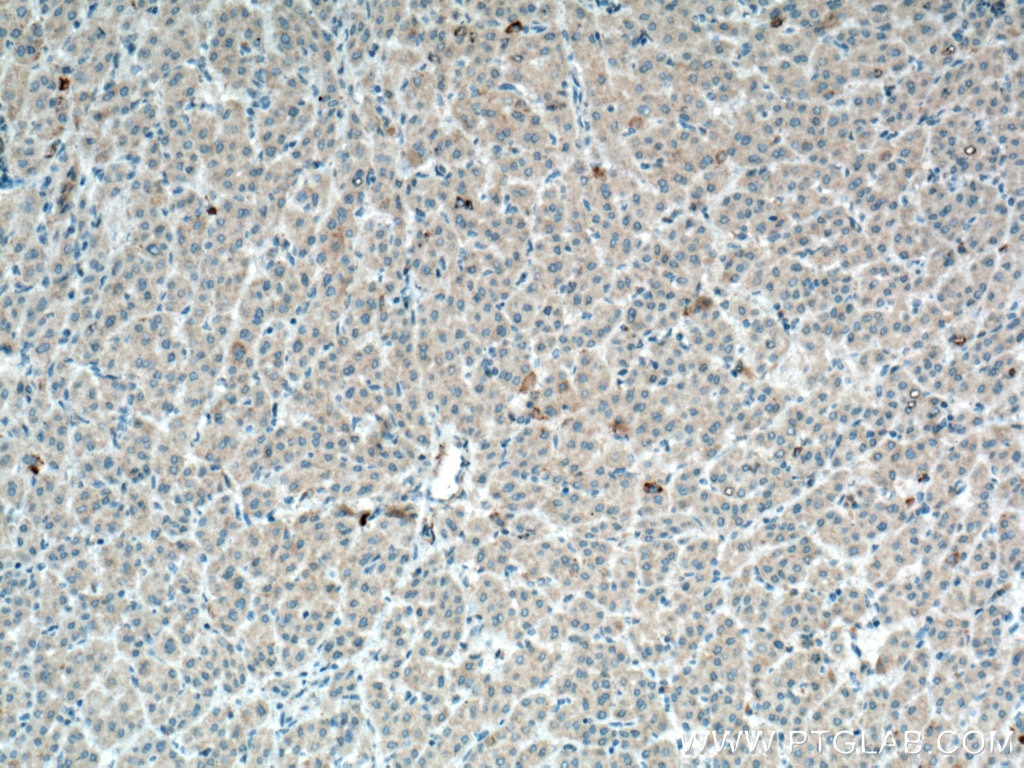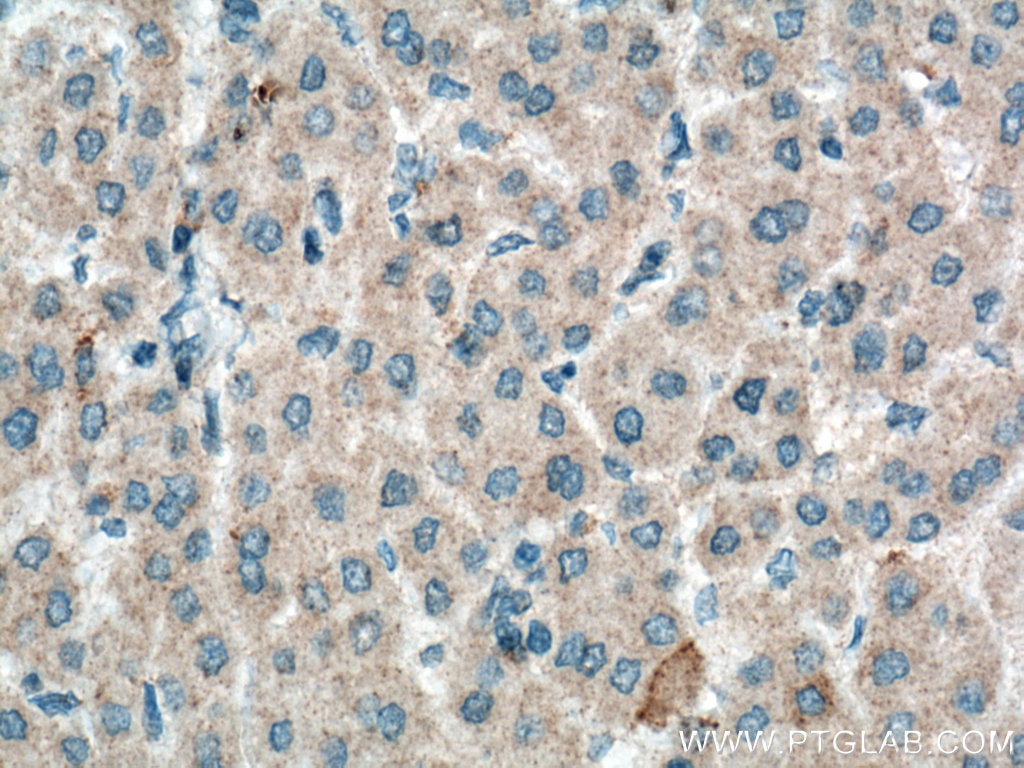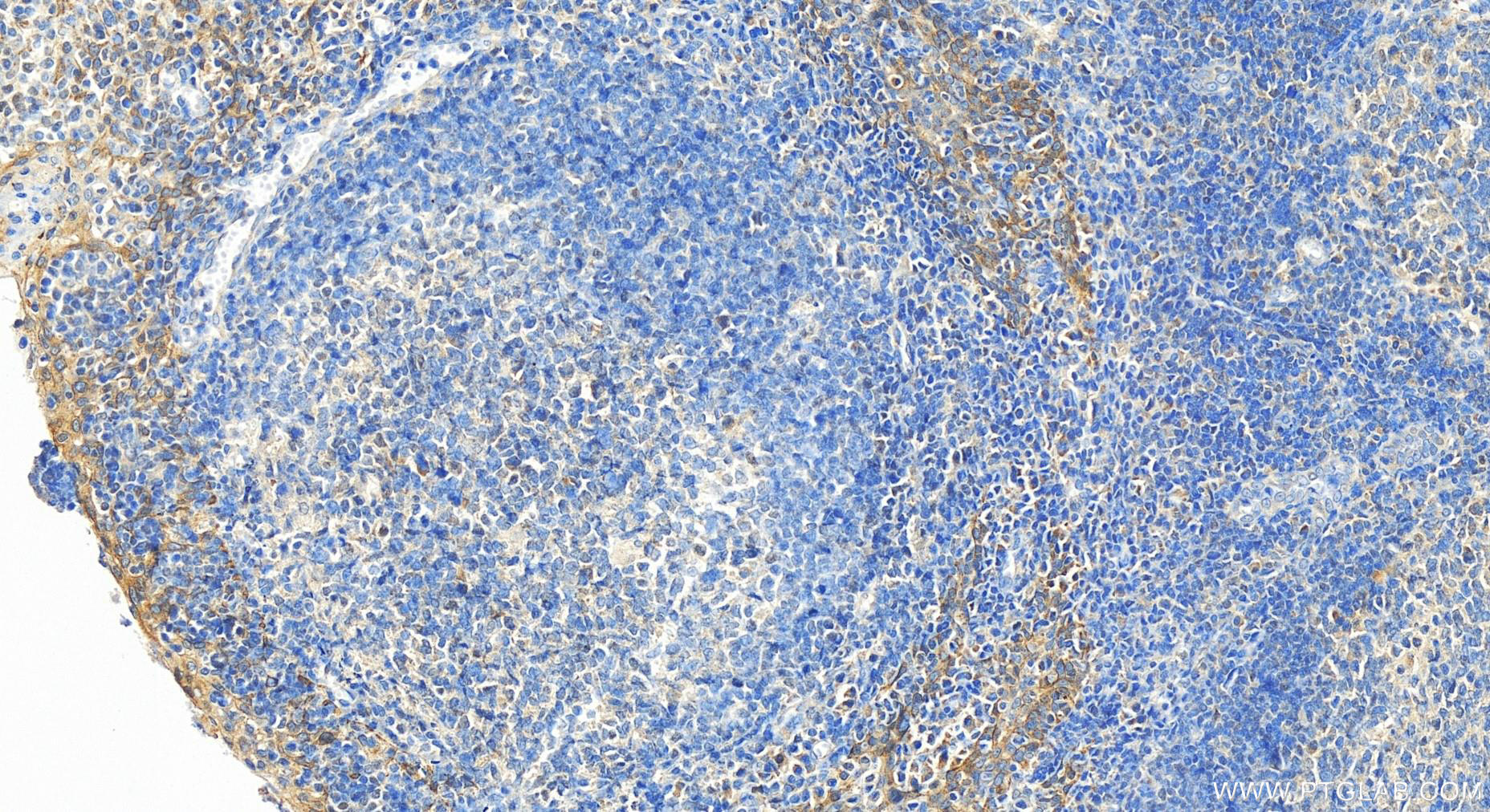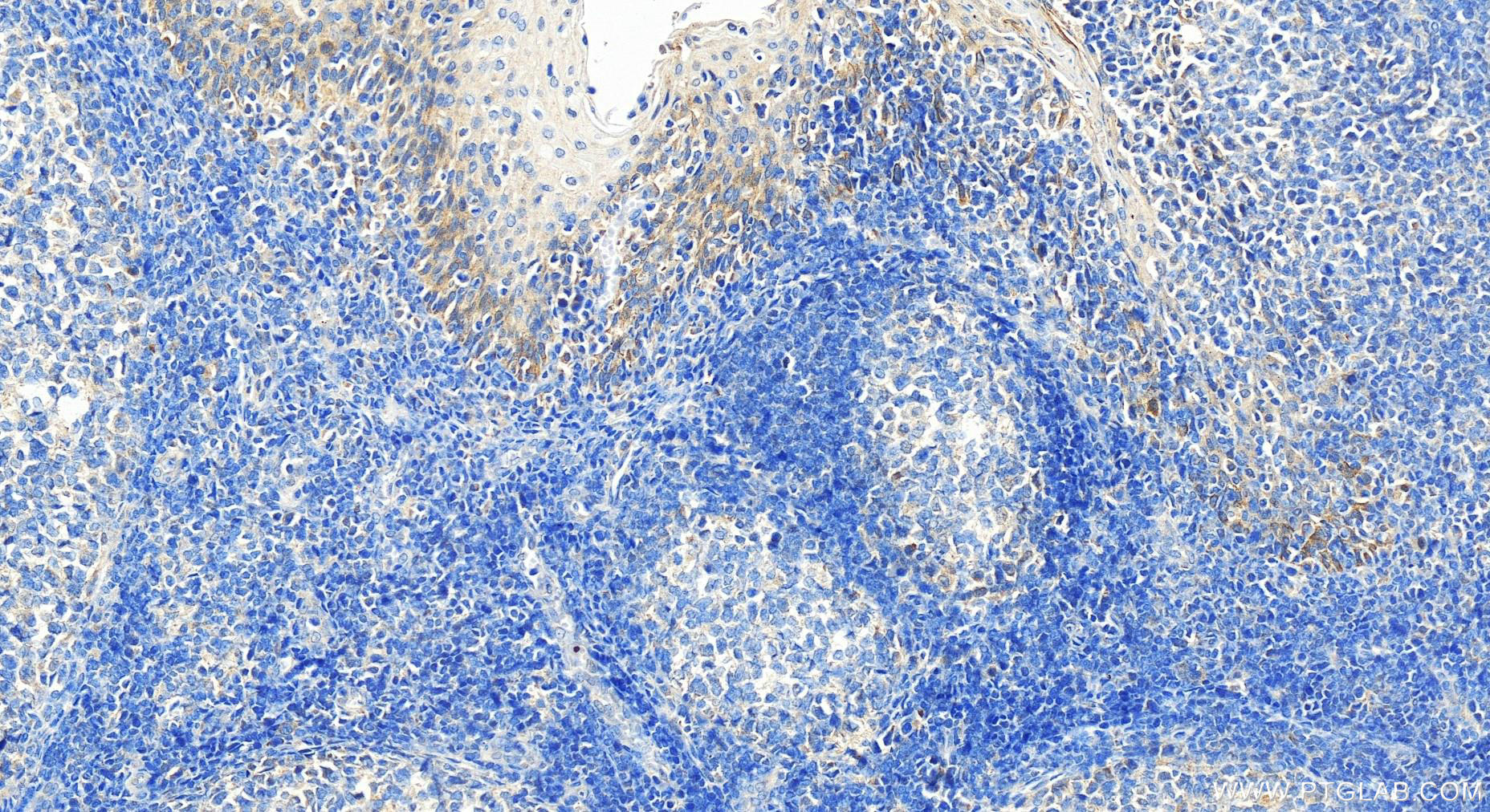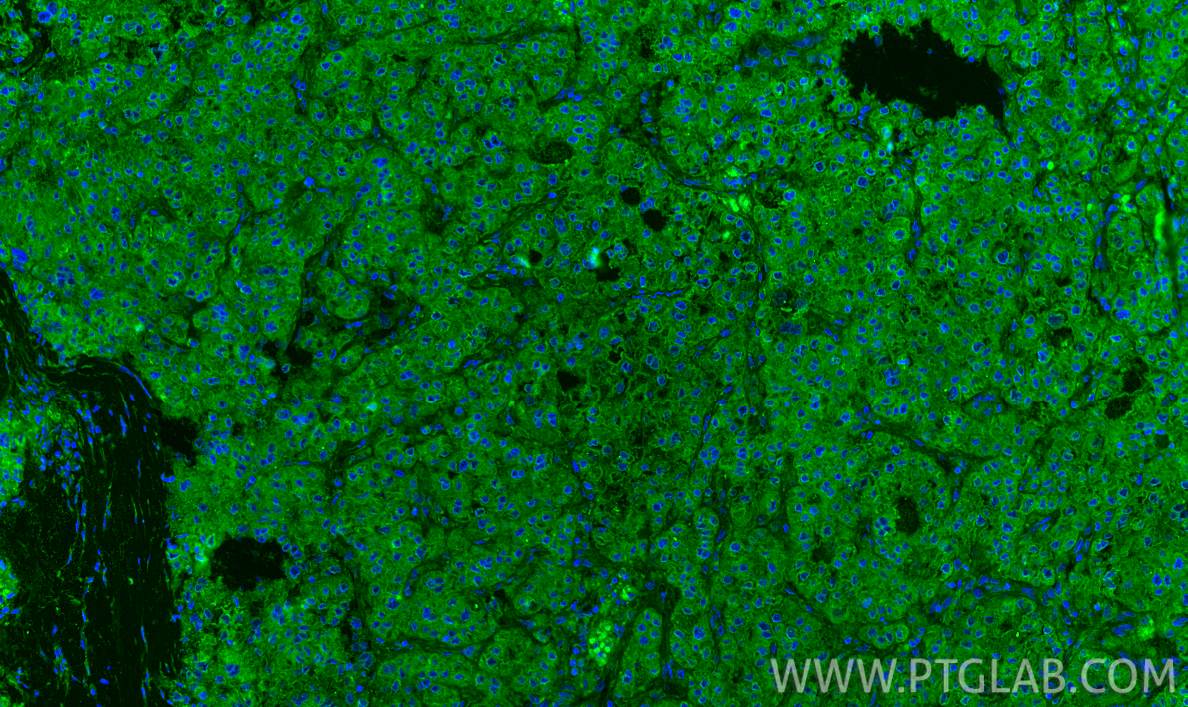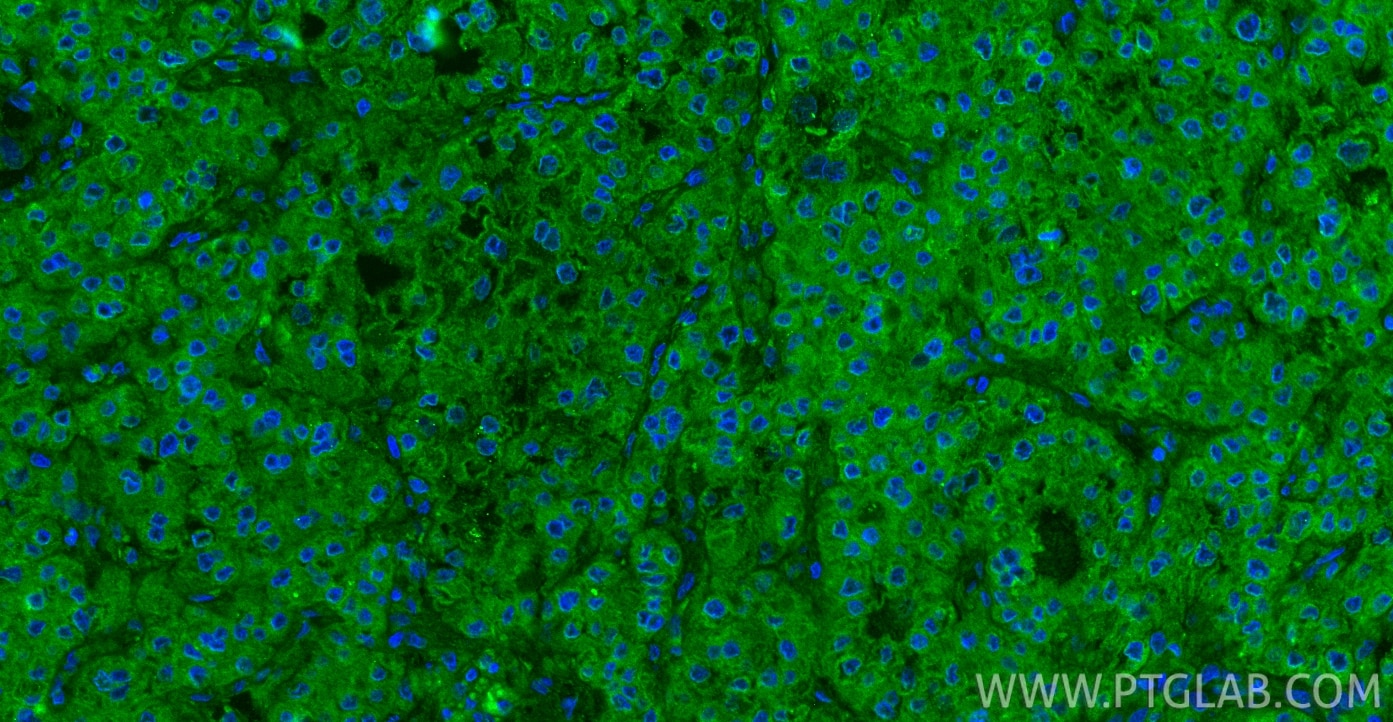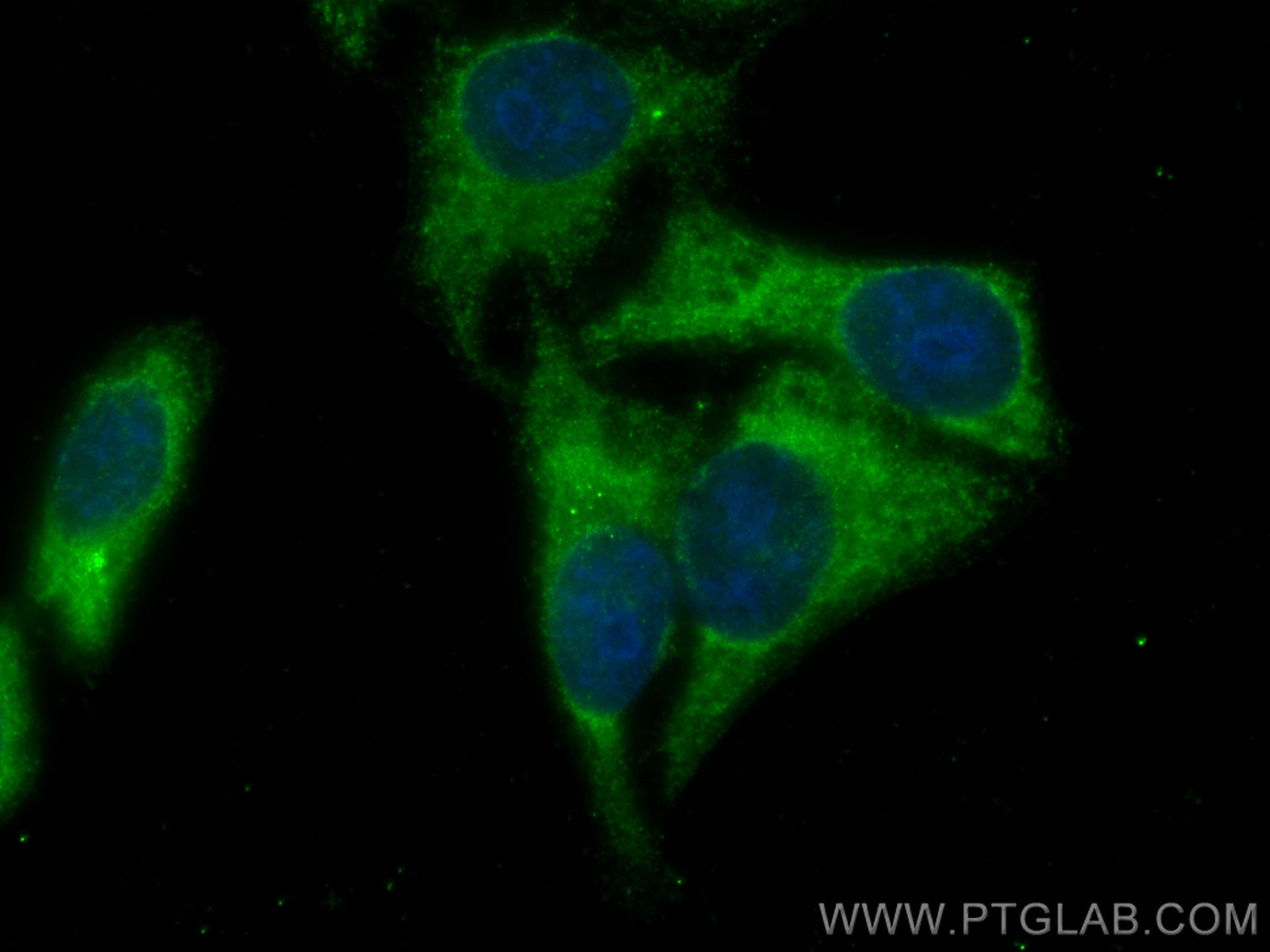Tested Applications
| Positive WB detected in | HEK-293T cells, A-204 cells, JAR cells, HepG2 cells, NCI-H1299 cells, U-87 MG cells, human placenta tissue |
| Positive IHC detected in | human liver cancer tissue, human tonsillitis tissue Note: suggested antigen retrieval with TE buffer pH 9.0; (*) Alternatively, antigen retrieval may be performed with citrate buffer pH 6.0 |
| Positive IF-P detected in | human liver cancer tissue |
| Positive IF/ICC detected in | HepG2 cells |
Recommended dilution
| Application | Dilution |
|---|---|
| Western Blot (WB) | WB : 1:500-1:2000 |
| Immunohistochemistry (IHC) | IHC : 1:50-1:500 |
| Immunofluorescence (IF)-P | IF-P : 1:50-1:500 |
| Immunofluorescence (IF)/ICC | IF/ICC : 1:200-1:800 |
| It is recommended that this reagent should be titrated in each testing system to obtain optimal results. | |
| Sample-dependent, Check data in validation data gallery. | |
Published Applications
| WB | See 18 publications below |
| IHC | See 3 publications below |
| IF | See 7 publications below |
Product Information
26881-1-AP targets HGF in WB, IHC, IF/ICC, IF-P, ELISA applications and shows reactivity with human samples.
| Tested Reactivity | human |
| Cited Reactivity | human, mouse, rat |
| Host / Isotype | Rabbit / IgG |
| Class | Polyclonal |
| Type | Antibody |
| Immunogen |
CatNo: Ag25456 Product name: Recombinant human HGF protein Source: e coli.-derived, PET28a Tag: 6*His Domain: 118-157 aa of BC130286 Sequence: LYENKDYIRNCIIGKGRSYKGTVSITKSGIKCQPWSSMIP Predict reactive species |
| Full Name | hepatocyte growth factor (hepapoietin A; scatter factor) |
| Observed Molecular Weight | 69 kDa |
| GenBank Accession Number | BC130286 |
| Gene Symbol | HGF |
| Gene ID (NCBI) | 3082 |
| RRID | AB_2880668 |
| Conjugate | Unconjugated |
| Form | Liquid |
| Purification Method | Antigen affinity purification |
| UNIPROT ID | P14210 |
| Storage Buffer | PBS with 0.02% sodium azide and 50% glycerol, pH 7.3. |
| Storage Conditions | Store at -20°C. Stable for one year after shipment. Aliquoting is unnecessary for -20oC storage. 20ul sizes contain 0.1% BSA. |
Background Information
Hepatocyte growth factor (HGF) is the most potent mitogen of mature hepatocytes in primary culture. HGF is derived from a biologically inactive single chain precursor of 728 amino acids (pro-HGF) localized mostly on the cell surface and in the extracellular matrix. The mature form produced following proteolytic cleavage is composed of a 69-kDa α-subunit (containing four kringle domains) and the 34 kDa β-subunit, similar to the catalytic domain of serine proteases, but with amino acid substitutions in the active site. HGF is a pleiotropic cytokine which exerts a variety of effects on several cells, being involved in the regulation of many biological processes, such as inflammation, tissue repair, morphogenesis, angiogenesis, tumour propagation, immunomodulation of viral infections and cardio-metabolic activities.
Protocols
| Product Specific Protocols | |
|---|---|
| IF protocol for HGF antibody 26881-1-AP | Download protocol |
| IHC protocol for HGF antibody 26881-1-AP | Download protocol |
| WB protocol for HGF antibody 26881-1-AP | Download protocol |
| Standard Protocols | |
|---|---|
| Click here to view our Standard Protocols |
Publications
| Species | Application | Title |
|---|---|---|
ACS Nano Mesenchymal Stem Cell-Derived Extracellular Vesicles Attenuate Mitochondrial Damage and Inflammation by Stabilizing Mitochondrial DNA. | ||
Adv Sci (Weinh) In Vivo Reprogramming of Tissue-Derived Extracellular Vesicles for Treating Chronic Tissue Injury Through Metabolic Engineering | ||
Cancer Res ErbB3 targeting enhances the effects of MEK inhibitor in wild-type BRAF/NRAS melanoma. | ||
Clin Transl Med Ursodesoxycholic acid alleviates liver fibrosis via proregeneration by activation of the ID1-WNT2/HGF signaling pathway. | ||
J Control Release Peritoneal M2 macrophage-derived extracellular vesicles as natural multitarget nanotherapeutics to attenuate cytokine storms after severe infections. | ||
Int J Cancer Therapeutic Activity of DCC-2036, a Novel Tyrosine Kinase Inhibitor, against Triple-Negative Breast Cancer Patient-Derived Xenografts by Targeting AXL/MET. |

